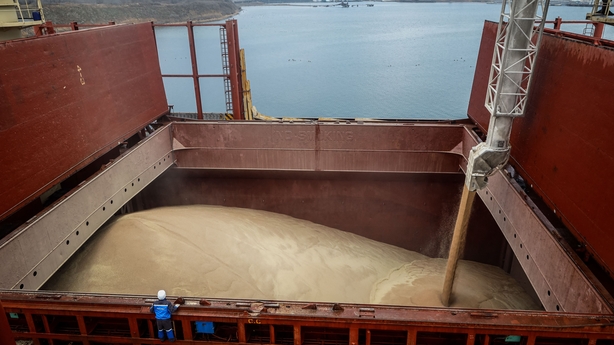The European Commission has said unilateral action by member states on banning Ukrainian cereals is "not possible" under EU trade rules.
Following Russia's invasion of Ukraine, the EU scrapped tariffs and quotas on Ukrainian grain imports and helped create so-called "solidarity lanes" facilitating the shipment of grain to developing countries, sometimes via eastern and central European member states.
However, farmers say the Ukrainian grain imports transiting their countries have caused local prices to crash.
It has been reported that a shortage of trucks and trains to bring the grain to ports, en route to the Middle East and Africa, has contributed to grain being held in storage and prompting a slump in prices.
Following bans issued by Hungary and Poland, it has been reported that Slovakia and Bulgaria have followed suit.
The European Commission today said it was in touch with Warsaw and Budapest and is assessing the legal basis of their decisions to halt Ukrainian cereals.

An EC spokesperson said that once grain enters the EU it is free to move around the internal market and it is up to commercial operators how they ship it on to clients in the developing world.
"We are in contact with the relevant member states," said Commission spokesperson Miriam Garcia Ferrer.
"It's important to remind [member states] that trade policies are an exclusive competence, which means that at European Union level such decisions can be taken.
"And that's why we have been saying that unilateral action is not possible under EU trade policy."
At the end of March member states adopted a European Commission proposal to release €56 million in support to farmers suffering from a slump in grain prices.
However, on 31 March Poland, Bulgaria, Romania, Hungary and Slovakia wrote to the Commission saying more supports were needed to deal with the slump in prices.
The Commission says it is working on a second proposal.
Ukraine's president Volodymyr Zelensky raised the issue with the Polish prime minister Mateusz Morawiecki when he travelled to Warsaw on 5 April.






